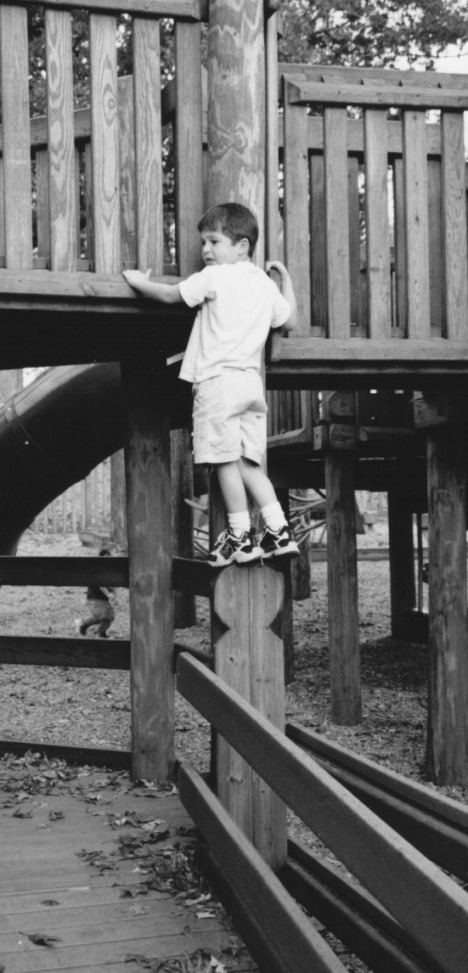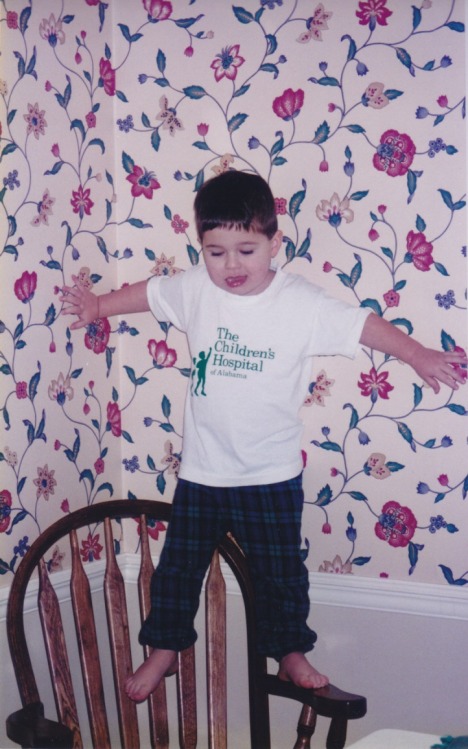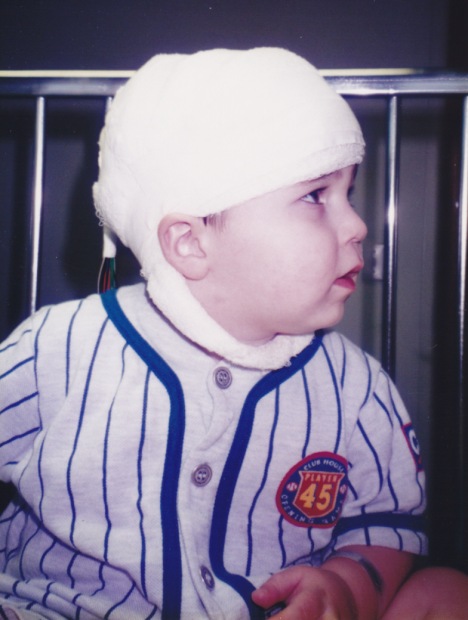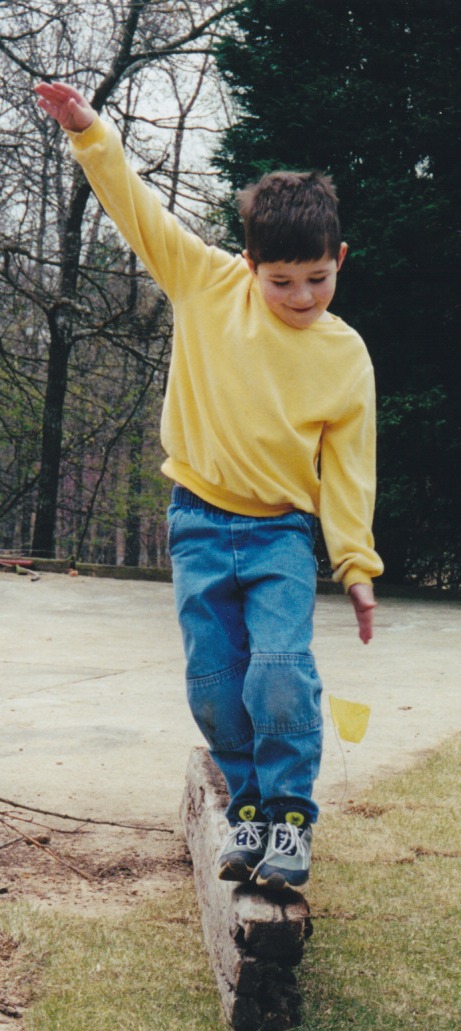Fact: The most common sensory problems autistic people experience are their hyper- or hyposensitivities to sensory stimuli. Their senses seem to be too acute (in the case of hypersensitivity) or not working at all (in the case of hyposensitivity).
Robert has always had sensory issues from the time he was little. We were fortunate in that most of his were manageable…or maybe its that we learned to compensate and manage them for him.
Fact: Hypervision (seeing ‘invisible’) means that they can see better than other people, i.e. their vision is too acute. For example, they notice the tiniest pieces of fluff on the carpet, complain about “moths (air particles) flying”, dislike bright lights, look down most of the time, are frightened by sharp flashes of light, etc.
Having a mom that is a photographer illuminated (heh! sorry, the pun was just too easy) his sensitivity to bright lights, to some extent. Since kids learn from all of their senses, that posed its own set of problems. Flashes of lights, fireworks, even sparklers actually caused him physical pain. Since his wires were all crossed, he often put his hands over his ears when lights were too bright. He adjusted to camera flashes (for the most part) and I adjusted using a flash over time. He still doesn’t care for lightning.
Another manifestation of sensory issues was something we all found incredibly cool in our household. 🙂 (Yes, we ARE entertained easily) 😉 …
Running through the den one day, the TV was on and Robert glances up, skids to a stop, and is riveted to the screen. We had just purchased a DVD player and had hit “Play” on a DVD we had rented. He reverently approached the entertainment center, his eyes never leaving the screen. Intent and ever so quietly, we heard him whisper, “It’s DEE VEE DEE…” He could literally SEE that it was a better quality. He had no idea we had purchased the player, nor had we told him anything about the difference. He had seen “better quality” advertised in commercial promoting DVD players and made the association when he noted the difference. It was SO cool! 🙂
*Fact: (Sensory) Vestibular hyposensitivity: They enjoy and seek all sort of movement and can spin or swing for a long time without being dizzy or nauseated. Autistic people with vestibular hyposensitivity often rock forth and back or move in circles while rocking their body…
The vestibular seeker may seek gravity and movement in any way. Climbing may be this child’s’ forte and she may need vigorous movement to fulfill the sensory need. “She may crave linear movement and enjoy rocking or swinging for exceptionally long times. She may especially see rotary movement, such as twirling in circles, shaking her head vigorously from side to side, or spinning on the playground merry go round or tire swing.” – Out of Sync Child
*(BOLD indicates issues that Robert has had)
We used to take him up to Kid’s Kingdom so he could spin in the tire swing at will. He would look straight down through the middle of tire as we spun him HARD for extended periods of time – say 10-15 minutes straight – then he would stop and walk away. Not dizzily. Not wobbly. Just run off finding a new sensory input.
Climbing was another HUGE issue for him. It was common to walk into our family room and find him at eye level on shelves when he was a toddler. 
Ledges of windows, the arms of kitchen chairs, counters, it was only a question of when. His OT told us that for him, climbing was essential. She equated it to when you’re tummy rumbles and you have to eat – it was compulsive and necessary for his nervous system, not an act of rebellion.
That explained why he always looked so bewildered when we would find him and scold him! 🙂
We also tested him to make sure he wasn’t having seizures during the “zone out” time. They restrained him while hooking up to a whole bunch of electrodes on his head, then wrapped his head to make sure he didn’t pull any of the wires out. He looked so cute/pitiful!
 Thankfully, the only issues we determined he had from the testing was not seizure activity, but difficulty walking away when the wires attached to the monitors would allow him only so much distance before yanking him up short.
Thankfully, the only issues we determined he had from the testing was not seizure activity, but difficulty walking away when the wires attached to the monitors would allow him only so much distance before yanking him up short.
 I know, I know…I shouldn’t have found it funny! And I suppose I shouldn’t have giggled about it while typing it just now, but I am a sucker for slapstick comedy and as I’ve said NUMEROUS times here on this blog,
I know, I know…I shouldn’t have found it funny! And I suppose I shouldn’t have giggled about it while typing it just now, but I am a sucker for slapstick comedy and as I’ve said NUMEROUS times here on this blog,
I find the humor in the most innapropriate situations. But if you can’t laugh in life, what do you do? 🙂
Filed under: In the Fishbowl - Living With Autism, Life Writer, On a Personal Note | Tagged: autism, autism awareness, children, family, love, sesory integration |





BEST ONE YET!